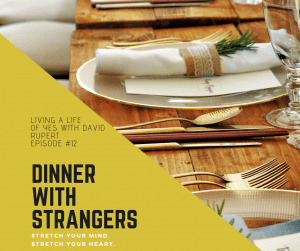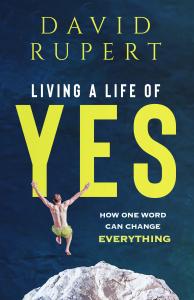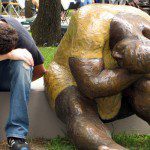A few nights ago I went to dinner.
No big deal, right? But it was a dinner with strangers — people who I likely wouldn’t see eye-to-eye on a number of issues.
The meal was organized by Make America Dinner Again, an organization trying to foster civil conversation around shared food.
This was my second adventure, so I wasn’t nearly as nervous. But still…MADA puts purposefully puts people across the table from each other who do not agree on an issue. There are a few ground rules that no doubt help keep the food on the plate instead of in the air.
Each night we tackle an issue and try to talk through all sides with respect. In the end, we attempt to come up with some common ground.
Homelessness — A Blight or a Shared Problem?
This discussion was about homelessness. I live in the Denver area and a recent ballot initiative attempted to lift the camping ban, essentially allowing homeless to sleep on sidewalks, public spaces, and parks with some restrictions. The ballot measure lost. But all sides agree that something needs to be done. Denver’s homeless population has doubled in just four years. Police routinely push out encampments, forcing them to the next neighborhood or suburb.
The city is spending millions on housing, treatment, and programs. It doesn’t seem to be making a difference.
So, Make America Dinner Again brought together people from all sides just to talk.
I sat at a table with a young girl who was raised “as a rolling stone,” by a mother who wasn’t afraid to pick up stakes and move — often sleeping in a car with her children. I also met Beth, who was an older woman who was primarily concerned about “fairness” in life. At the end of the table was a self-described “recovering anarchist.” “Yes,” he said. “I just wanted to blow it all up and start over.” But a touch of reality eventually turned him. Sitting next to him was a tiger mom, who was raising three young boys. She was concerned about needles in the park but also didn’t want her “privilege” to be passed on to her children. “We need to do something.”
And anchoring the table was Jerry. The black Marine was probably in his 40’s and he has been living on the street for five years. He is the “mayor” of his encampment, helping advocate for services and proper treatment from the authorities. He sees housing as “an inalienable” right and his advocacy starts from this position, as a God-granted inherent need. Jerry doesn’t use drugs or drink. He just chooses to live on the streets. He hates shelters. He’s been an articulate and outspoken advocate for his street citizens. Jerry’s kind of famous around here.
And then there was me. Government worker. Past middle-aged. Conservative. Born-again. Compassionate, but also understanding the harm of enabling behavior. I know my company is hiring and so is everyone else. I have my bias. I also have my empathy. I’m trying to figure it out.
Now, this was a dinner.
Over at another table I saw a man with a Desert Storm Veteran hat sitting next to a transgender individual. An older couple was talking with two younger Asian women.
Over our food, we were given discussion questions. They were provocative but thoughtful. We talked about Homelessness. What causes it. What perpetuates it. What concerns homeowners. What concerns businesses. It was great having Jerry there, as he was willing to be asked anything. We asked him about mental health, drug use, and what makes a “good spot.” He was engaging and yet passionate.
I left the dinner encouraged. There were about 30 of us scattered at a small cafe. We were all talking. We were all laughing. No one got called a right-winger. No one was labeled a fascist.
When I left the gathering it was snowing. That’s right. May 20th and the sky is falling. I thought about the warm car that would drive me to my warm house. I wasn’t guilty, but I realized that with just a few bad choices and I might have faced a different place to sleep that night.
Why Do This?
Glenn Beck says this about MADA. “When you’re face to face with someone at a dinner table, that ‘evil’ conservative or ‘ignorant’ liberal becomes somebody that’s sitting at your dinner table, and they’re human.”
He’s right.
Part of the Living a Life of Yes challenge is to purposefully do things that are uncomfortable, that stretch your mind and your heart. I could have stayed home. There’s plenty to do there. But then I would missed out on meeting these people, from shaking the hand of an anarchist, to talking with a bearded man in a dress like a human being, to listening to Mayor Jerry.
Who is my neighbor
In my new book, Living a Life of Yes, I write about discomfort:
“I love the story of the good Samaritan because it so perfectly illustrates humanity. We see the broken, busted-up, needy people, and one by one we pass them up.
Jesus told the story to illustrate an answer to the question asked in Luke 10:29 (NLV): “Who is my neighbor?” I think we are continually trying to limit our responsibility, to narrow our world and our scope. If we can narrowly define “neighbor” as those on either side of us and to the house immediately across the street, then that relieves us of loving the cranky guy on the corner. That restriction helps us ignore the single woman down the road who is pregnant for a third time with no husband in sight. It assuages our guilt about not helping the guy across town who lost another job.
I like to draw a circle and then tell God He is free to work within those limits. “I’ll go where you want, as long as it’s within these perfectly thought out parameters.”
Jesus has a way of shaking us out of what is comfortable.
One of the women at my church said “yes,” and it changed her life. Angie worked at a high-end salon in downtown Denver. It was her dream job, one she had trained for, and she worked hard to get a booth there. It was the ultimate in prestige for her profession.
One day a teenager walked into the salon. To her, he exceeded the standard scruffiness of youth. Judging by his dress and his grooming, it was apparent he was homeless. He asked to use a telephone, and she handed over her cell phone to use.
As he spoke to the other party, she was overcome with compassion. When he hung up, she told him to sit down and she would give him a shampoo and haircut. He grudgingly gave in to her infectious smile. When she finally spun him around in the chair for the big reveal in front of the mirror, his furrowed crease turned into a smile that lit the room.
“I could see a load lifted off his shoulders. Suddenly he found dignity,” Angie later said.
That one haircut, that one moment of discomfort, changed the trajectory of her life. Angie was forced to leave her dream job but later opened her own studio. You see, the owners of the other place didn’t take kindly to her act of compassion.
Now she can give haircuts to whomever she wants. And her heart for giving dignity to the homeless and the poor has opened her world. One unsuspecting moment that inconvenienced her has forever impacted her—and others.
“This has flipped my life upside down,” she said. “You think you are changing them, but they change you.”
Saying Yes doesn’t mean you have to go across the world. Sometimes you just need to go across the street. Or in this case, just talk to someone across the table.
——————–
Listen to Living a Life Yes Podcast
** Excerpt from Living a Life of Yes, How One Word Changes Everything, Illumify Media, 2019 available at Amazon, Barnes and Noble or your local bookstore.
















